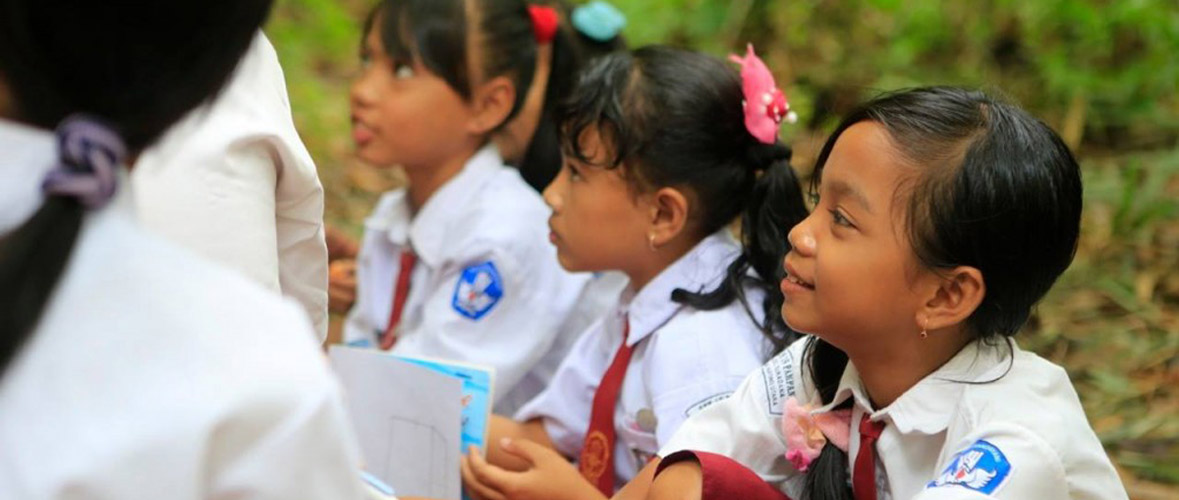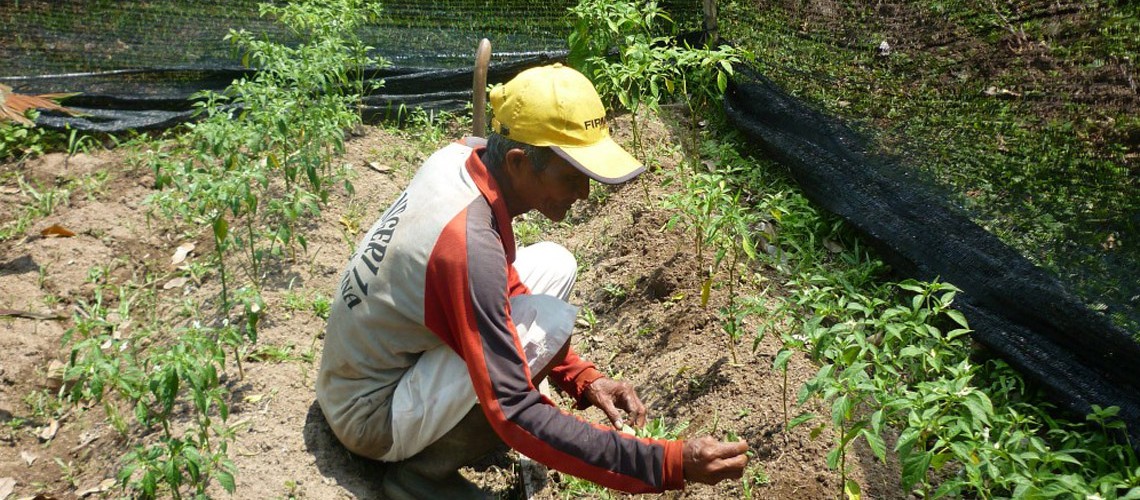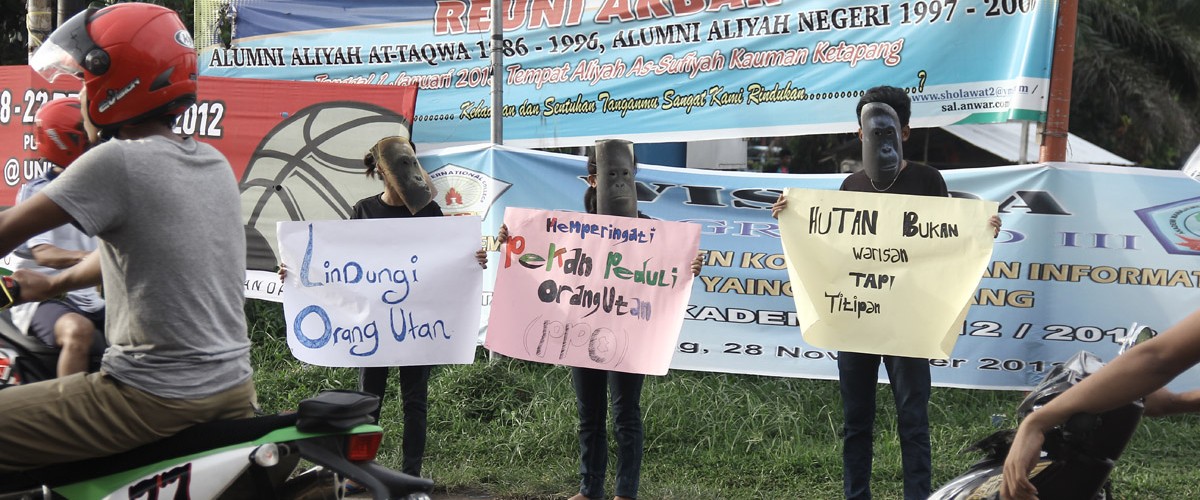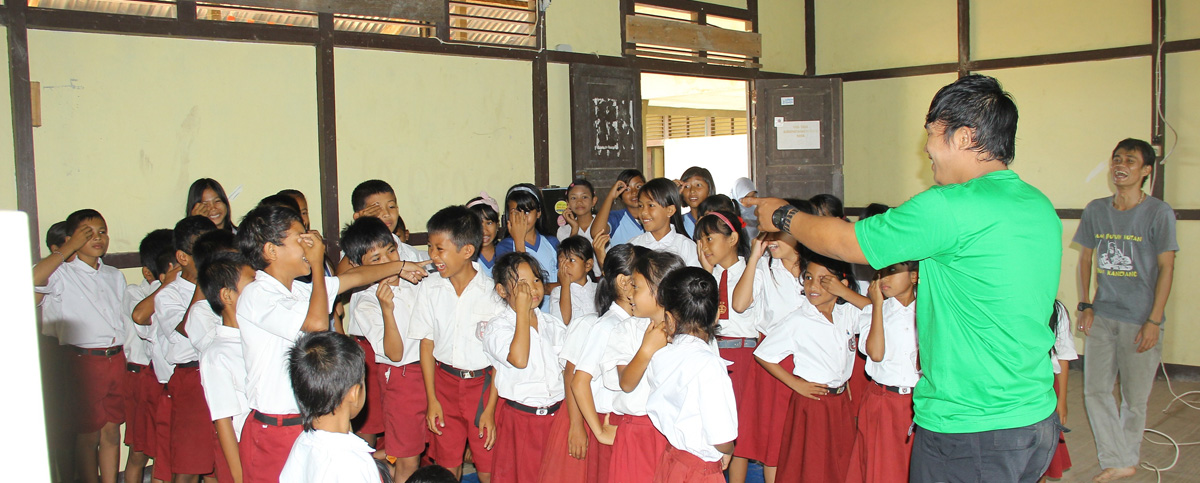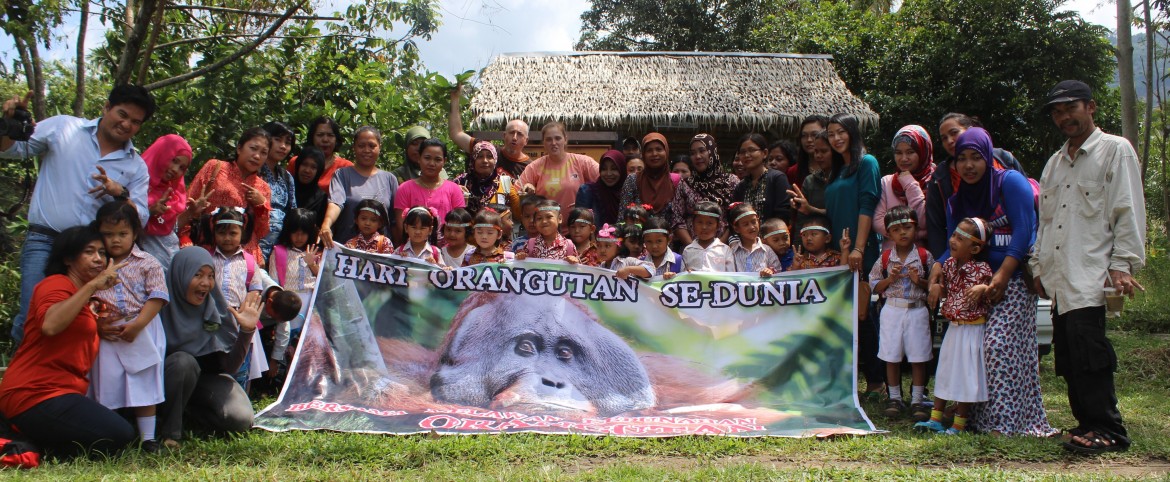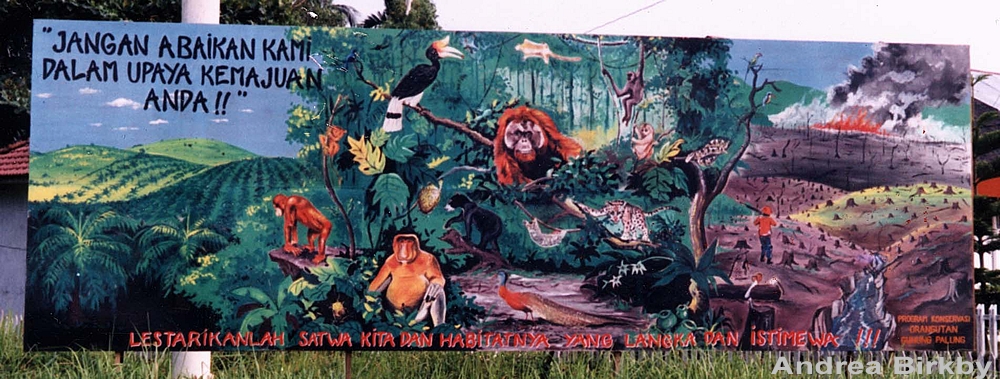By Victoria Gehrke, Conservation Program Director
This year, a humorous, yet somewhat eye opening photo challenge rippled across the internet where you compare something from 2009 to 2019. In short, the #10YearChallenge (hopefully) shows your growth and improvement, and reminds you to never forget your humble beginnings and that time literally flies.
The international conservation community joined the challenge as well, showing the detrimental changes over the last 10 years in terms of land use, landscape development, and climate change. These images of deforestation, glaciers melting, plastic bottles not breaking down, and starving polar bears showed how much has changed in only 10 years and highlighted the strong need for immediate action towards sustainable socio-economic development and wildlife conservation.
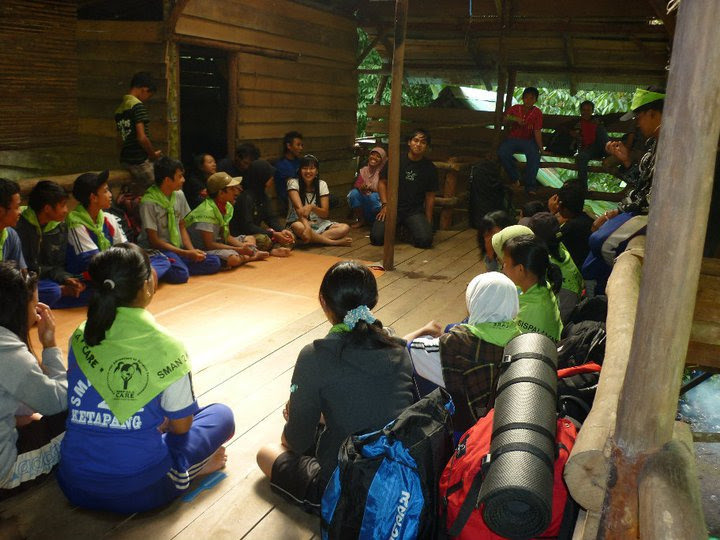
Without taking away any of the important messages and stark warnings that the #10YearChallange has delivered regarding environmental issues, especially for the general public, we wanted to join this challenge on a smaller scale for our own positive spin for a #10YearChallengeInConservation. We took on this reflection as a precursor for our upcoming 20-year conservation impact analysis for GPOCP’s 20 years as an in-situ conservation organization.
The Gunung Palung Orangutan Conservation Program started in 1999, and by 2009 we were reaching 1,300+ students annually through environmental education activities including field trips, lectures, puppet shows and special events. Ten years later, in 2019, GPOCP has steadily expanded to ensure high quality environmental education outreach to directly engage over 8,218 students and adults in the GP landscape through 180 activities (so far just this year). We have expanded to include four annual week-long environmental education expeditions to remote communities that would otherwise not receive visits from local NGOs.
This year, we have reached 3,157 people through these expeditions, where the team hosts puppet shows, lectures, mobile cinema events, and community discussions to understand the problems faced by both people and wildlife in the area. Our strategy, across all our programs, has always been to listen, understand and adapt to create realistic long-term local solutions to wildlife conservation. We, then work hard to follow up with those communities to facilitate change with an open dialogue.
In addition to those reached by the above programs, we work directly with local youth over long periods of time. We currently have two active volunteer groups of over 50 members who go on field trips, host special events and help with education outreach. Our Bornean Orangutan Caring Scholarship (another new program within the last decade!) supports local college students. In collaboration with Orang Utan Republik Foundation, we have fully funded 30 students to complete university degrees and have 7 graduates all working in conservation. Four of them were recruited back to work with GPOCP – it’s a natural choice when we know exactly how great they are!

In 2009, we identified 25 individual wild animals being held illegally for the pet trade, with 17 of those leading to confiscations. Animals were held in our local transit center. In 2019, we have identified 23 individual animals (orangutans and other wildlife including sun-bears and gibbons) held illegally, and though the numbers don’t look like improvement without context, it is a definite win. It has become increasingly difficult to locate illegally-held animals, suggesting better law enforcement and that our Environmental Education and Conservation Awareness activities have helped make people aware of local laws and the consequences of breaking them.
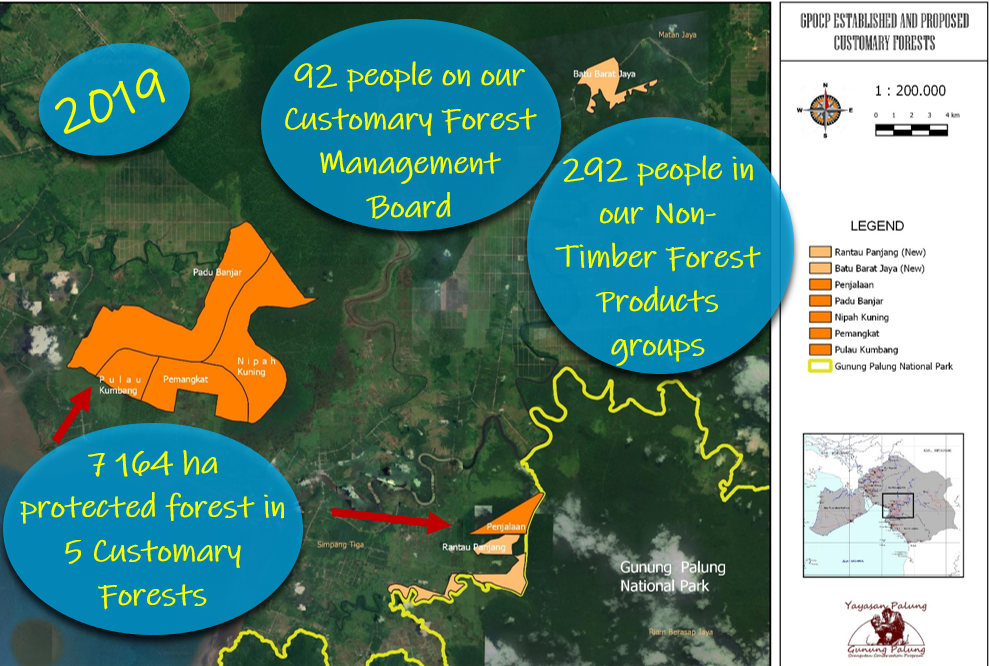
Our Customary Forest program has also come a long way since 2009! This program works to obtain legal protection and establish a community management system for a carefully selected local forest. In 2009, we had only just submitted a proposal for the legal decree to protect 1,070 ha forest in the village of Lamon Satong. Since then, not only has the proposal been accepted, but other villages took inspiration from the model and approached GPOCP to help establish a similar strategy for their forests. Now we have 5 established Customary Forests, totaling 7,174 ha and in 2019 have submitted proposals for two additional forests consisting of another 1,179 ha. We work with 92 active members who form the Customary Forest Management Boards, and over 292 people across 22 groups produce Non-Timber Forest Products as a result of sustainable agro-forestry with their forest products. Commodities include coconut oil, coconut shell products (cups, bowls, art), nipah or pandanus bags, mats, bowls etc., fish crackers, honey and coffee.
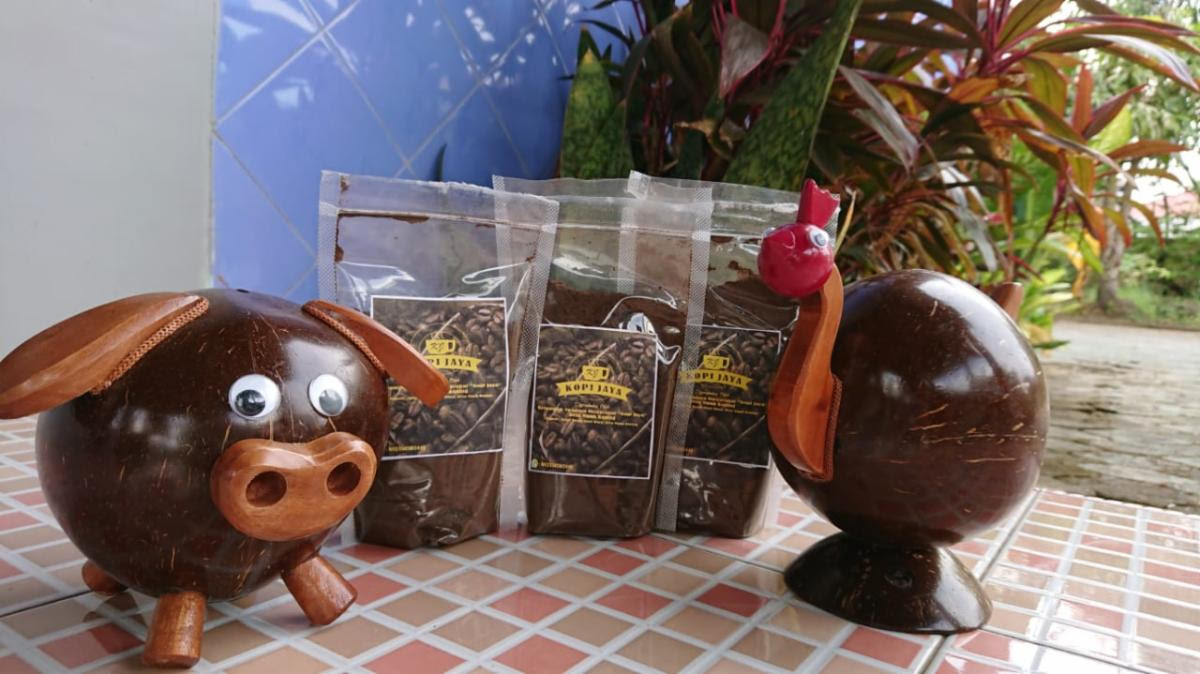
Our programs work intimately with local communities to develop lasting relationships and independent strategies for long-term success. That success can be hard to quantify – we teach one student, but that student teaches their family and friends, who teach theirs and so on. Members of the organic farming groups show others how to create a sustainable and non-environmentally destructive income for their family that also doesn’t put them in danger (logging, arrest, long work hours and travel). The people are seeing the results of their own hard work and choices, guided and facilitated by GPOCP.
Most important, not a single activity would have been possible without our heroic supporters, donors and funders. Thank you all for your support and we look forward to another #10YearChallenge!
